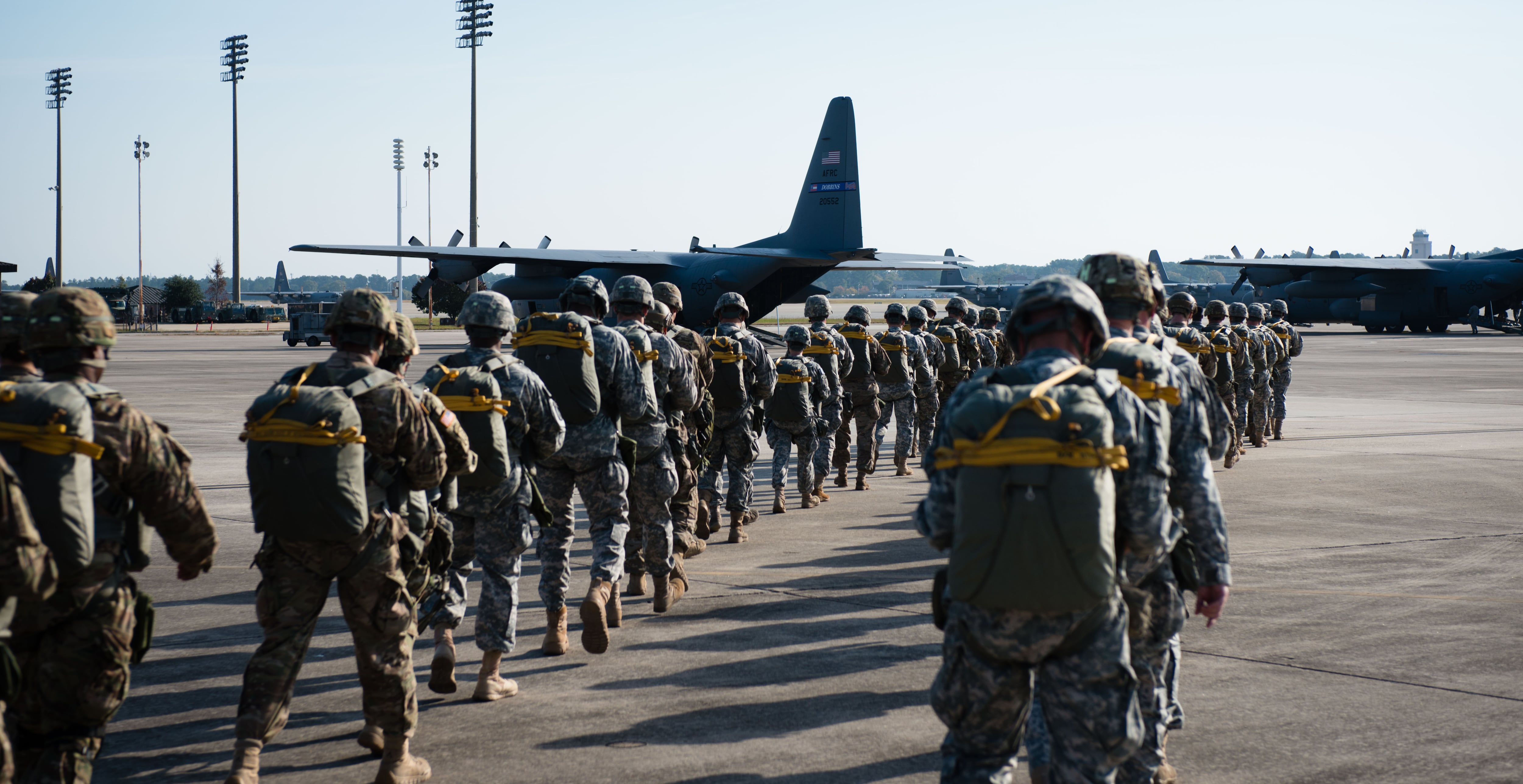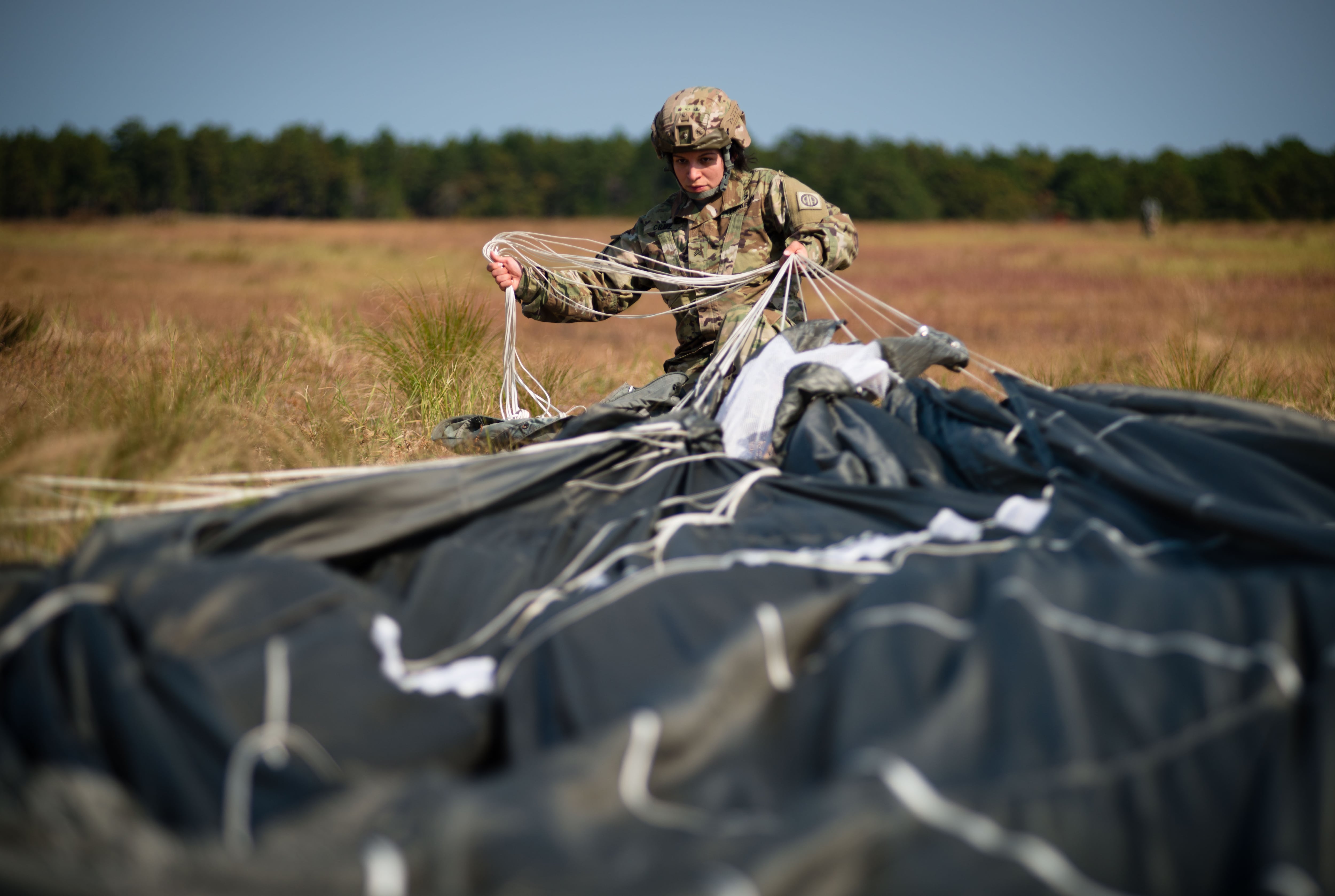Fort Bragg's popular Saturday Proficiency Jump Program is back, and paratroopers across the North Carolina post are flocking to the drop zone for their chance to fall out of the sky.
The monthly program, once a staple at Fort Bragg, fell away during the height of the war in Iraq, as troops from the XVIII Airborne Corps, the 82nd Airborne Division and U.S. Army Special Operations Command shouldered back-to-back deployments overseas.
Under the direction of Lt. Gen. Stephen Townsend, commanding general of the XVIII Airborne Corps, the program was reinstated last month.
The return of the program marks a renewed emphasis on readiness, basic soldier skills and the ability to deploy at a moment's notice.
For example, as the demand for troops in Iraq and Afghanistan has eased, the 82nd Airborne, which also has the Global Response Force mission, has stepped up large-scale tactical jumps and deployment readiness exercises.

When XVIII Airborne Corps and Fort Bragg restarted the popular Saturday proficiency jump program on Oct. 24, paratroopers as well as families and friends gathered for the spectacle.
Photo Credit: Army
Last month, more than 700 paratroopers showed up for the Oct. 24 jump. Between 200 and 250 were turned away because they either didn't have the proper paperwork or they were too late to grab one of the 500 spots allocated for the jump.
On Saturday, paratroopers will get their second chance at the program, as 3rd Brigade Combat Team, 82nd Airborne Division, hosts November's jump.
As many as 560 parachutes have been set aside for this weekend's jump at Sicily Drop Zone.
The program is "intended to be a monthly opportunity where we can maintain proficiency and readiness," said Brig. Gen. Brian Winski, deputy commanding general of the 82nd Airborne.
"This is a fairly unique opportunity for paratroopers to get a day jump in, and it gives young paratroopers who love to jump another opportunity to jump," he said. "Most importantly, more repetitions equals more experience equals more readiness."

Paratroopers at Sicily Drop Zone are honing their skills as Fort Bragg resumes the monthly jump program that was interrupted by wartime deployments.
Photo Credit: Army
Because the jumps aren't linked to a tactical training exercise, families, friends and veterans are encouraged to show up to support the soldiers, Winski said.
"It's a great opportunity for family members, for veterans, to come out and see paratroopers do what we love to do," he said.
In October, 500 chutes were allocated for the proficiency jump, and the turnout was "ridiculous," said Sgt. Maj. Tom Clementson, a spokesman for the XVIII Airborne Corps.
Because the chutes are mostly allocated on a first-come, first-served basis, some paratroopers showed up at Sicily Drop Zone as early as the night before the jump to ensure they were in position to get a chute, he said.
"They had to turn away 200 to 250 folks who wanted to jump," Clementson said.
Last month, "the weather was fantastic, there was virtually no wind, it was warm and sunny. It was a great afternoon to bring the family out to Sicily Drop Zone," he said. And many paratroopers did just that, bringing their families and friends out for a day on the drop zone. Some family readiness groups were there, too, selling treats to the crowd.
Army regulations require airborne soldiers to jump at least once a quarter to remain on jump status and qualify for jump pay. But one jump every three months is not enough to maintain soldiers' basic skill sets, officials said.
"Jumping once a quarter simply isn't enough because our troopers must be ready to deploy on short notice and jump into a contested area," said Command Sgt. Maj. Benjamin Jones, the senior enlisted soldier for the XVIII Airborne Corps. "The Saturday program gives our paratroopers an opportunity to get the repetitions they need to increase their proficiency and feel confident in their training when the call to deploy comes."
The monthly jumps are not combat jumps, so combat equipment is optional, Clementson said. The jumps are designed to be administrative — or so-called Hollywood — jumps so paratroopers can focus on exiting the aircraft and getting a good landing, he said.
This Saturday, manifest call begins at 5 a.m. on Sicily Drop Zone near the bleachers. Paratroopers who wish to jump should work with their unit, as jumpers need to bring a jump memo signed by their unit commander or first sergeant, or a Basic Airborne Refresher slip from the U.S. Army Advanced Airborne School. Jumpers also must bring their ID card and tags, and their Advanced Combat Helmet. Other combat equipment is optional.
Most of the chutes are allocated on a first-come, first-served basis, but paratroopers who need a jump to remain proficient and qualified for jump status and pay will have priority.
Michelle Tan is the editor of Army Times and Air Force Times. She has covered the military for Military Times since 2005, and has embedded with U.S. troops in Iraq, Afghanistan, Kuwait, Haiti, Gabon and the Horn of Africa.




